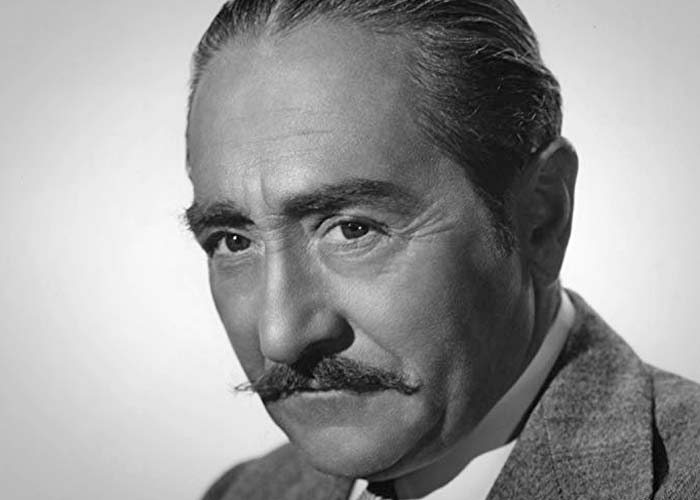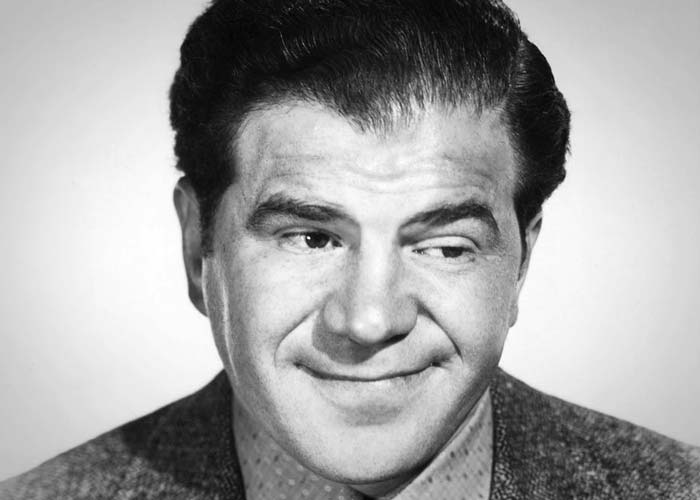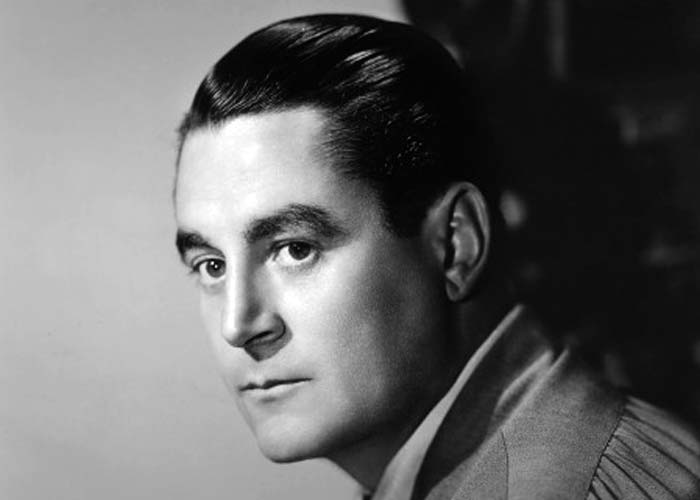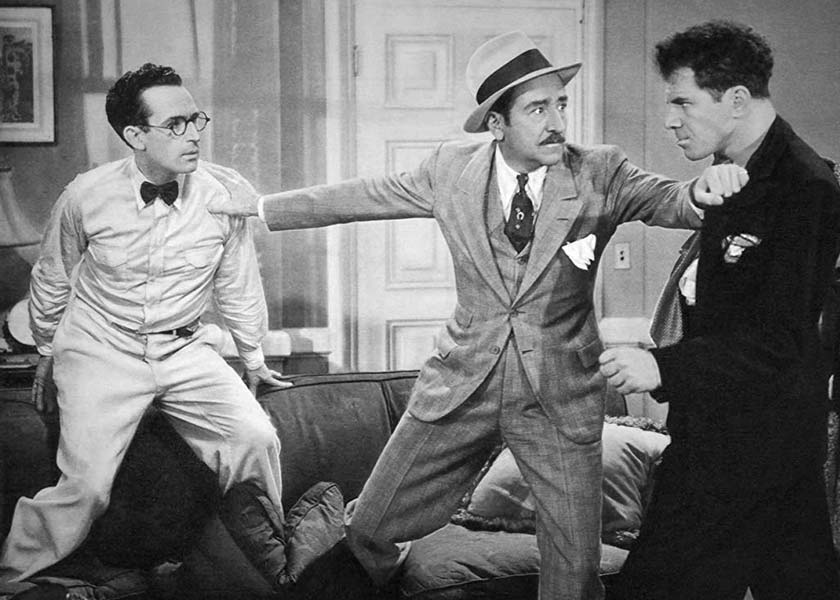Synopsis
The fun begins with the opening credits wherein the Paramount logo, a snow- covered mountain, dissolves to show a mooing cow, thus spoofing Leo the Lion’s roar at the beginning of rival studio MGM’s features.
The opening scene finds us at the headquarters of Sunflower Dairies where the CEO,
Wilbur Austin (George Barbier), is giving a pep talk to the assembled troops, i.e.
the milk delivery men employed by the dairy. Wilbur extolls the performance of a
certain milkman, who has accumulated 428 points over the last sales period.
Needless to say this individual is not Burleigh Sullivan (Lloyd), whose
performance is subpar. Burleigh develops a case of the hiccups during Austin’s
diatribe, thus interrupting his boss constantly. He also manages to break several
empty milk bottles through his clumsiness. Austin’s only comment is
I’ll see you later!
The scene changes, and we are inside a nightclub. The hatcheck girl is answering
the telephone. She is Burleigh’s sister, Mae (Mack). It is Burleigh on the line,
telling her that he’ll arrive shortly to pick her up. Meanwhile, two inebriated
gentlemen have appeared to get their hats. They are Speed McFarland (Gargan), the
Middleweight Champion of the World and his trainer/bodyguard/best friend Spider
Schultz (Lionel Stander). Speed takes a shine to Mae and tries to pick her up; she
attempts to brush him off. Burleigh arrives and tries to defend his sister. When
Spider asks What’s your name?
Burleigh responds
Puddintame; ask me again and I’ll tell you the same!
This rejoinder
infuriates Spider, who has to be restrained by Speed. Further inquiries as to
Burleigh’s name get responses of
Joe Monroe; ask me again and you still won’t know!
and
Poo-poo-pah-doo; that’s who I am and who are you?
Each response further
angers Spider, and a melee results. Mae rushes off to get a policeman, and a crowd
gathers. Mae returns with the cop to find the crowd separating. Spider and Speed
are on the ground; Spider is dazed but Speed is out cold. Everyone assumes that
Burleigh has knocked out the Middleweight Champion of the World! While bystanders
shake his hand and Mae registers astonishment, Burleigh grins and swells with
pride.
The scene dissolves to a paperboy shouting
Extra! Extra! Read all about it! Middle weight champion knocked out by truck
driver!
Next we see Speed’s manager, Honest
Gabby Sloan (Menjou), boarding an
airplane in Philadelphia, flying back home to assess the situation and do damage
control, if needed.
The scene shifts again, this time to the apartment shared by Speed and Spider. In an adjacent apartment we meet Gabby’s mature, wisecracking, yet elegant and sexy mistress (Teasdale). Speed awakens and rushes to the mirror; he has a beautiful black eye! Ann enters and confronts Speed about his shiner:
Ann:How did you get that?
Speed:I was shadow boxing and…
Ann:…and the shadow won?
Speed:You’re not going to say anything to Gabby about this are you?
Ann:He reads just as easy…
Spider:But he’s in Philadelphee.
Ann:I hear they got a paper there now!
Just then Gabby is seen below entering the building, surrounded by newspaper men; he brushes them off, grabs an elevator, and heads for the apartment. He enters, furious with both Speed and Spider. Gabby demands an explanation from the two men.
Speed:Spider and I were walking down the street and up comes the biggest guy I ever saw!
Spider:Bigger!
Speed:With hands as big as watermelons!
Ann:How did he wind his watch?
Speed:I had to jump up in the air to hit him!
The phone rings. Spider answers. Burleigh is on his way up!
Ann:Let’s all hide under the bed!
Burleigh appears at the door. He is manifestly not the big bruiser described by
Speed and Spider. Burleigh explains that he was a puny kid that bigger kids picked
on and so he consequently learned how to duck to the extent that no one can touch
him. Spider demures and takes several pokes at Burleigh, missing each time. In the
confusion Speed grabs Burleigh from behind, Spider swings at Burleigh, Burleigh
ducks and Spider socks Speed on the jaw with a roundhouse punch. Speed collapses
to the floor just as the press boys burst through the door. Confusion reigns and
we fade to a newspaper headline stating
This is not yesterday’s paper - it happened again today!
The headline is
accompanied by a photo showing Burleigh standing over a supine Speed. Gabby stands
next to Burleigh looking dumbfounded. To all appearances Burleigh has knocked out
the champ twice within a 24-hour period!
The scene changes and we find Gabby prostrate and glassy eyed in bed, attended by Ann. He jumps up suddenly, the recipient of a brilliant idea. He sends Spider out to find and collect Burleigh, whom we next see on his rounds, delivering milk. The milk wagon is pulled by his beloved horse Agnes. Spider appears and tries to grab Burleigh who, with the aid of Agnes and a friendly policeman, thwarts him. Back to Gabby, who explains his brainstorm to Speed and Ann. They will turn Burleigh into a prize fighter! After he wins six or so bouts (rigged by Gabby, of course) they will match him up against Speed for the championship. Speed will win easily, save his reputation, and they’ll all make a lot of money. Gabby then sends Speed out to try to talk Burleigh into going along with the scheme.
We next find Speed in front of the apartment Burleigh shares with his sister. Speed rings the bell; Mae appears at the window and tells him to get lost. He persists, and the policeman who lives next door appears and hauls Speed off to the calaboose!
We return to Burleigh on his milk route just in time to see Agnes collapse and lie down in the street! Burleigh is frantic and calls for help; no one appears in the early morning dark, so he runs to the nearest apartment building and begins ringing doorbells. After much commotion and frustration an attractive young woman appears at her window and tells Burleigh that he can use her phone. She is Polly Pringle (Dorothy Wilson). Burleigh rushes upstairs and into Polly’s apartment. She directs him to her telephone. Burleigh calls the dairy.
Burleigh (on the phone):This is Burleigh. Something’s happened to Agnes! She’s lying in the gutter! She won’t get up! Her tongue’s hanging out a foot! Thirsty? She couldn’t be; she’s had plenty to drink. You’d better get her an ambulance!
Polly (understandably astonished):You’d better bring the lady up here…
Burleigh:She’s not a lady.
Polly:I didn’t think she was; but if she’s sick it doesn’t matter what kind of woman she is!
Burleigh:She’s just an old horse.
As Burleigh makes a clumsy exit Polly, obviously charmed, smiles broadly and
sighs. As Burleigh returns home he is accosted by Gabby, Speed, Spider, and Ann.
Gabby puts forth his proposal. Burleigh wants nothing to do with it. Speed decides
to use strong arm tactics. As he is about to slug Burleigh, Mae returns and,
seeing what’s about to happen, slaps Speed. She calls them all a bunch of hoodlums
and orders them out. Ann remarks: Brooklyn hospitality!
Seeing an angle,
Gabby pushes his three companions out the door and apologizes to Mae and Burleigh.
Spying a photograph of an elderly woman on the wall, he makes a logical
assumption.
Gabby:You know, Burleigh, I sometimes wonder if we’re half the men our mothers hoped we’d be. I’ll bet your mother’s a sweet little woman.
Burleigh:Yeah…she’s been having a little trouble with her kidneys lately, hasn’t she sis?
Gabby (pointing to the photograph):You know, Burleigh, that’s uncanny. If I didn’t know, I’d swear that that was my mother.
Burleigh:Maybe it is your mother. It was here when we moved in.
The phone rings.
Burleigh:Pardon me. That’s my horse.
Ann (to Gabby, as she pulls him, glassy-eyed, through the doorway):How about a glass of warm milk?
Burleigh answers the phone.
Burleigh:But she was sick Mr. Kinney! I had to take her to the hospital! Yes, I know those things cost money.
Gabby (who has been lurking outside, thrusts his head through the open window):Oh Burleigh, did I hear you say you needed cash?
Burleigh:Oh, you couldn’t sell her hide! No, Mr. Kinney, I’m not trying to tell you how to run your business. But you can’t do that to Agnes! Alright, fire me then! She’s worth more than that to me alive!
Fired from his job and needing money to pay his beloved horse’s medical bills, Burleigh succumbs to Gabby’s offer of a soft life and easy, quick money. It is indeed an offer he can’t refuse.
The scene changes to a close-up of a sign which proclaims: GABBY SLOAN’S RETREAT. BEWARE OF VICIOUS DOGS. KEEP OUT! Burleigh emerges from the gym wearing a pair of outlandishly baggy trunks held up by suspenders, and a pair of gumboot brogans. He encounters Ann reading a newspaper and, perhaps to impress her, leaps over a nearby hedge, only to land in a hidden pool of water.
Ann:Oh Tiger! We always use the bridge.
Burleigh reaches the practice boxing ring to find a down-in-the-mouth Spider waiting for him. Ann walks over to watch the fun. Spider attempts to instruct Burleigh in the fine art of fisticuffs, only to grow more and more frustrated at his pupil’s total ineptitude. Spider finally gives up; Burleigh is hopeless. Ann takes pity on both of them.
Ann:Oh Tiger, do you know how to dance?
Burleigh:Dance? Why yes, at the Sunflower you know we used to…
Ann (interrupting):How do you hold a girl? Now close your fists. Now dance!
Burleigh:Without music?
Ann proceeds to warble a version of the Skaters Waltz, as follows:
Ann:Traa Laa La-La, Boom! Boom!
On Boom! Boom!
Burleigh throws a couple of weak punches. He proceeds to
waltz around the ring to Ann’s vocalizing, really beginning to enjoy himself.
Spider looks on in total disbelief at the spectacle.
Fade to another part of the compound; Speed and Gabby are having a discussion. In
the distance a surrey drives up, stops, and disgorges Mae and Polly. Sensing
trouble, Gabby decides to make himself scarce and tells Speed to charm the two
women, especially Burleigh’s sister, whom Gabby describes as
plenty tough.
Speed tries to ingratiate himself with Mae; she is skeptical.
We move on to Burleigh’s first fight. He enters the arena with Gabby and Spider and sees the end of the previous match. The pugilist in the white trunks is getting pounded and pulverized by his opponent, who finally lands a haymaker on White Trunk’s chin knocking him off his feet and putting him down for the count. Burleigh is not so sure he wants to go through with the contest. His opponent, Tornado Todd, and his second enter the ring.
Second:Imagine havin’ to lose to this guy?
Tornado Todd:It don’t seem right!
Ultimately, the fight goes on. Polly and Mae listen on the radio. Burleigh wins! Burleigh, Mae, and Polly are astonished. Gabby, Spider, Speed, and Ann are not; they know that the fix was on.
We now follow Burleigh on his round of knockouts in successive cities, climaxing with his triumphal return to the Big Apple! Bands play and the crowd goes wild as Burleigh’s train reaches the station. Burleigh emerges. But wait! This is not the shy, modest, awkward, but lovable, Burleigh of old. He has undergone a complete change of personality. Burleigh is now a strutting show-off, dressed in loud clothes and obviously wallowing in the adulation of the assembled throng. Polly looks on from the crowd, clearly bewildered and disappointed in her boyfriend’s character transformation. Mae and Speed, now a couple, also appear; they are equally puzzled by his change.
Plot developments: Gabby has sold Burleigh’s contract to Mr. Austin of Sunflower Dairies for $50,000; Austin hopes to use Burleigh’s success to advertise his products.
Gabby has bet the whole $50,000 on Speed to win, knowing that Burleigh hasn’t a chance if his opponent puts up a real fight. Mae and Speed overhear Gabby explaining all this to Ann. Mae thinks Burleigh will be seriously injured, if not worse, and talks Speed into refusing to fight his future brother-in-law. But, once again confronted with Burleigh’s newfound insufferable egotism, she changes her mind and urges Speed to fight. Polly, also seeing the changes in Burleigh and calling him a killer, wants nothing more to do with him and tells him so, leaving him bewildered. Convinced that he has a Jekyll and Hyde personality, Burleigh decides that he cannot fight Speed for fear of hurting him. In a classic exchange, Gabby convinces Burleigh that by not fighting he will be depriving hundreds, if not thousands, of babies of milk. Burleigh again changes his mind and decides that he must go through with the fight.
At last, the big day arrives! Burleigh and Speed are to fight for the Middleweight Championship of the World! But where is the Fighting Milkman? It turns out he’s visiting Agnes who, after all, was merely expecting a blessed event. Little Agnes is the spitting image of her mother! Burleigh hastens to the fight in a taxi, with Little Agnes following on hoof. An amusing sequence follows involving Burleigh, Little Agnes, and the cab driver (portrayed by perpetual cab driver Murray Alpert). Meanwhile, Mae and Polly have gotten wise to the fact that Speed is going to beat Burleigh to a pulp. Also, Burleigh has withdrawn all the family fortune from the bank and bet it on himself to win. Panic ensues!
Burleigh and Little Agnes finally arrive at the arena. In the confusion, the filly
conveniently kicks Speed in the jaw, knocking him out cold. Gabby sends Spider for
some smelling salts
(ammonia) to help revive the Champ, but the
semi-literate trainer mistakes the word insomnia for ammonia and comes back with a
bottle of sleeping potion, which Speed proceeds to guzzle.
At ringside, Gabby implores the obviously drowsy Speed to make the fight look legit by going for at least three rounds. Burleigh then appears, dressed in a breakaway tuxedo which, when removed, reveals him to be wearing satin trunks emblazoned with the image of a milk bottle. Polly and Mae rush in and implore Burleigh not to fight, saying that his winning bouts have all been thrown by his opponents. The seeds of doubt are sown in his mind. The two pugilists mix it up for a while to comic effect. The climax finds Speed asleep on the canvas and a groggy but upright Burleigh declared the victor.
The final scene finds Burleigh in Speed’s locker room hoping to console his defeated opponent. Mr. Austin enters and offers to make Burleigh a partner in Sunflower Dairies if he will retire frtom the ring as undefeated world champion. The Champ jumps at the opportunity. Presumably Burleigh will revert to his former modest, lovable self and live happily ever after with Polly.
Discussion
Harold Lloyd is acknowledged to be one of the 'Big Three' of silent comedy, the others being Charles Chaplin and Buster Keaton. His silent classics include Safety Last! (1923), Why Worry? (1923), Girl Shy (1924), The Freshman (1925), and The Kid Brother (1927). His sound features are less well-known but certainly worthy of discussion and appreciation. Feet First (1930), Movie Crazy (1932), and The Cat’s-Paw (1934) are all funny and well-made, indicative of the care Lloyd gave to all of his features. But best of all Lloyd's talking pictures is The Milky Way.
By 1920, if not before, Chaplin, Keaton, and Lloyd had firmly established their
screen personas. Chaplin’s was the Little Tramp
; Keaton’s was the
Great Stone Face
. Lloyd’s was an ordinary looking fellow whose only
distinguishing feature was a pair of (lensless) horn-rimmed spectacles, often
named Harold. Lloyd called this person his glasses
character. Chaplin’s and
Keaton’s screen personalities varied little if any from film to film. Such was not
the case with Lloyd’s glasses
character, which varied substantially in his
different features. Sometimes he was a simple country lad (Grandma’s Boy, Girl Shy and The Kid Brother; sometimes he was an
urban middle-class go-getter (Safety Last!, Speedy). In
Why Worry? Lloyd portrays a rich, obnoxious hypochondriac; in
For Heaven’s Sake (1925) he was just rich and obnoxious. In
Dr. Jack (1922) he even portrayed a competent, self-confident
professional! Lloyd’s facility at incarnating different personas was essential to
the success of The Milky Way, in which he changes from a shy, awkward
milquetoast into a strutting loud-mouthed braggart, and then back again to a
somewhat more self-confident, but still sympathetic, version of his original
character.
Also essential to the success of the film was its strong supporting cast. Verree
Teasdale, Helen Mack, William Gargan, George Barbier, and Dorothy Wilson all make
major contributions to The Milky Way. Especially worth noting are
Adolphe Menjou as Honest
Gabby Sloan and Lionel Stander as Spider Schultz.
It would be hard to find two accomplished actors who otherwise differed from each
other so thoroughly.

Adolphe Menjou, whose first credited screen appearance was in 1916 and who was playing leading roles by the mid-1920s, epitomized the suave, sophisticated, debonair man of the world, born to wear white tie and tails. Menjou moved effortlessly into character roles later in his career. His last film appearance was in Walt Disney’s Pollyanna (1960). Not known as a comedian, his comic appearances were rare, but delightful nonetheless, as evidenced not only by The Milky Way but also by his Walter Burns in The Front Page (1931).

Lionel Stander entered films in the early 1930s after stage and radio experience. His first feature film credit was in 1935’s The Scoundrel. He appeared in such classics as Mr. Deeds Goes To Town (1936), A Star Is Born (1937), Hangmen Also Die! (1943), Call Northside 777 (1948), and Unfaithfully Yours (1948), as well as many more routine films. Harold Lloyd used him in his final three films: The Milky Way, Professor Beware (1938) and Mad Wednesday (1947). Stander even repeated his role of Spider Schultz in The Kid from Brooklyn (1946), Danny Kaye's vastly inferior musical remake of The Milky Way. Stander’s trademark sandpaper voice and hulking physiognomy made him perfect for playing working stiffs, gangsters, and palookas, serious or comic.
As much as their screen personas differed, Stander’s and Menjou’s politics were even more opposed. Menjou was known as one of Hollywood’s leading conservative Republicans. He loathed FDR and the New Deal and was a friendly witness before the House Un-American Activities Committee (HUAC) in their notorious Hollywood hearings of 1947. Stander, on the other hand, was one of Hollywood’s most outspoken leftists. He was held up by one of the Hollywood Ten (screenwriter John Howard Lawson) as the model of a committed Communist actor. He was an unfriendly witness before the same HUAC, where he refused to name names or otherwise betray his colleagues. He was then, of course, blacklisted, and had no screen appearances between 1951 and 1963. His career revived in the late-1960s and he was steadily employed through the 1970s, 1980s, and into the 1990s (mainly in the series Hart to Hart and its many TV movies). Stander’s final film, The Last Good Time, was released 1994, the year of his death. Of particular note is Stander’s performance in the Roman Polanski masterpiece Cul-De-Sac (1966).
One can only speculate on the off-screen interactions that might have occurred between the ultra-conservative Menjou and the radical leftist Stander on the set of The Milky Way. Fortunately for the film (and us) they were both thorough professionals and expert comedians and contributed strongly to its success.
On Harold Lloyd’s features prior to 1936 directing credits were given to such
competent journeymen as Fred Newmeyer, Sam Taylor, Ted Wilde, and Clyde Bruckman.
Presumably Lloyd did much of the directing himself, especially of himself, and
these gentlemen were around mostly to assist him, direct traffic, and work with
the supporting players. Taylor’s claim to movie fame (or infamy) came with the
Douglas Fairbanks/Mary Pickford version of The
Taming Of the Shrew (1929) which, according to legend, bore a title
card reading
From a Play By William Shakespeare; Additional Dialogue by Sam Taylor
!

Leo McCarey, director of The Milky Way, was anything but a journeyman; rather, he was one of the most distinguished and accomplished directors of the 1930s. His credits from that decade include such comic gems as Duck Soup (1933), Six Of a Kind (1934), Ruggles Of Red Gap (1935), and, especially, The Awful Truth (1937). The 1940s saw his greatest commercial successes even as he declined artistically. Once Upon A Honeymoon (1942), Going My Way (1944), and The Bells Of St. Mary’s (1945) were big box office hits. Going My Way won Academy Awards for Best Picture, Best Director, Best Actor (Bing Crosby) and Best Supporting Actor (Barry Fitzgerald). Despite their successes, these films display McCarey’s unfortunate tendency for mawkish sentimentality laden with excess doses of Irish blarney. Worst of all was My Son John (1952), an hysterical anti-Communist screed. But in The Milky Way, McCarey was at the top of his game.
With its combination of Harold Lloyd’s comic genius, Leo McCarey’s skilled direction, and the contributions of a great supporting cast, The Milky Way deserves to be ranked with The Awful Truth, Ernst Lubitsch's Trouble In Paradise, Frank Capra's It Happened On Night, Howard Hawks' Twentieth Century and Bringing Up Baby, Gregory La Cava's My Man Godfrey and William Wellman's Nothing Sacred as one of the great comedies of the 1930s.

